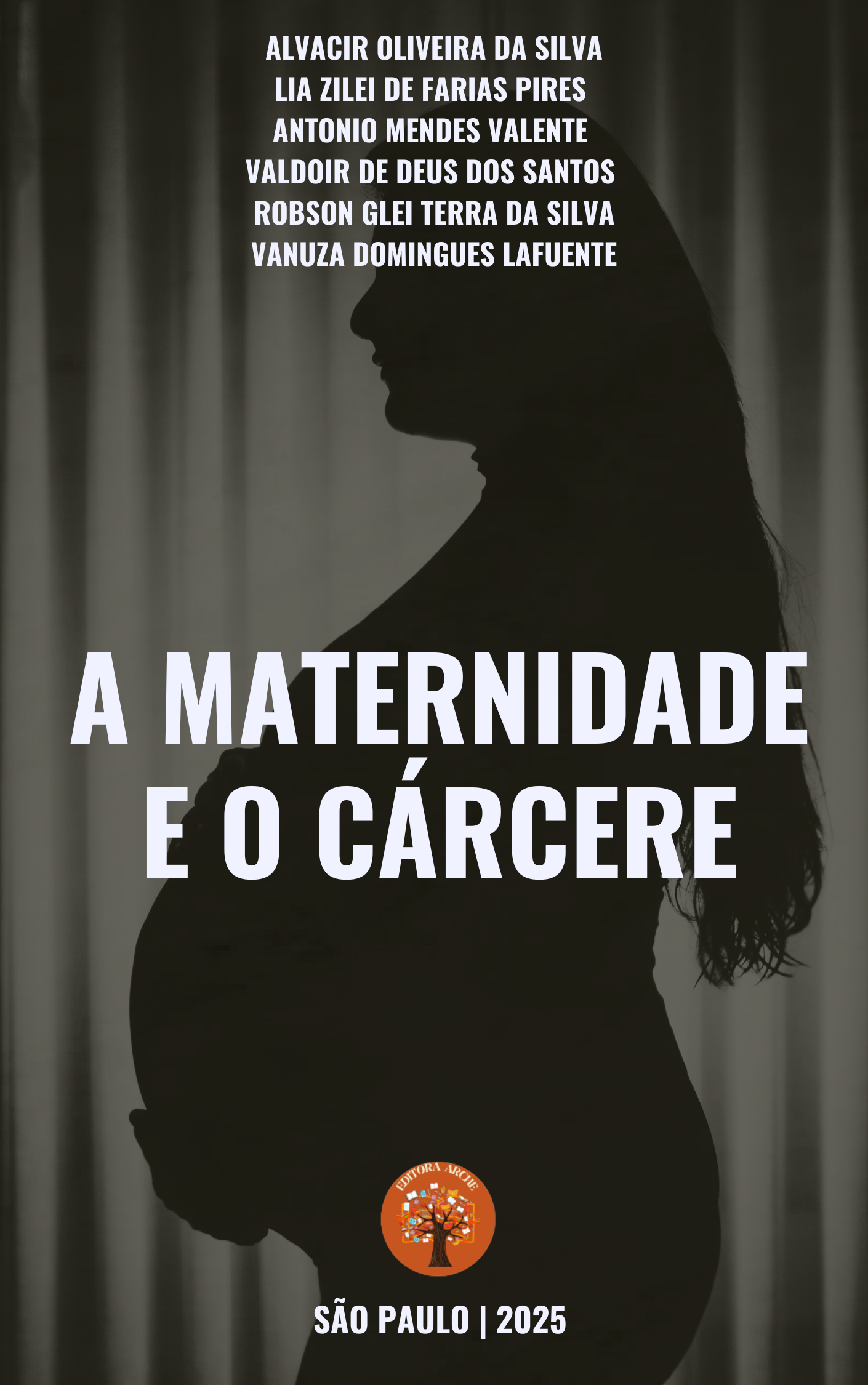MOTHERHOOD AND PRISON
Keywords:
: Female Incarceration. Maternity in Prison. Collective Habeas Corpus. Law 13.769/2018.Abstract
The Brazilian prison system, conceived from an essentially male perspective, reveals its deepest contradictions when we observe the specific situation of incarcerated women who experience motherhood. This book aims to thoroughly analyze this complex reality, which involves not only legal issues, but also profound social, psychological and gender dilemmas. Through a multidisciplinary approach, combining law, psychology, social work and anthropology, we seek to reveal the multiple aspects of this phenomenon, offering the reader a comprehensive and humanized understanding of the challenges faced by imprisoned mothers and their children in the Brazilian prison context.
In Chapter 1: Research Roots - Personal Trajectories and Conceptual Foundations on Prison Motherhood, we begin with an autobiographical narrative that reveals the author's process of discovery and involvement with the theme of motherhood in prison. Through a sensitive and reflective account, we follow her journey from her first contact with stories of incarcerated women to the maturation of an academic research committed to social transformation. The sociodemographic analysis presented reveals alarming data: approximately 62% of women in prison in Brazil are mothers, the majority of whom are young (between 18 and 29 years old), black (68%), with low levels of education and from vulnerable social classes. The chapter also establishes the main theoretical concepts that underpin the work, such as "structural vulnerability", "institutional gender violence" and "incarcerated motherhood", offering the reader the conceptual tools necessary to understand the subsequent chapters.
Chapter 2: Collective Habeas Corpus 143,641 under Analysis - Legal Achievements and Barriers in the Reality of Female Prisons, in this chapter, the legal core of the work, dedicating itself to a critical and detailed analysis of the historic Collective Habeas Corpus No. 143,641, granted by the Supreme Federal Court in 2018. Through a methodology that combines documentary analysis, case law study and interviews with legal professionals, we thoroughly examine each of the ministerial votes, highlighting both the conceptual advances and the resistance present in the ministers' arguments. The transformation of this decision into Law No. 13,769/2018 is analyzed in its technical and practical aspects, revealing how the letter of the law often comes up against structural obstacles: from procedural slowness to the persistence of a punitive culture rooted in the justice system. Concrete case studies illustrate the gap between legal theory and prison reality, showing how even formally recognized rights encounter barriers in their implementation.
The final chapter, Broken Bonds - The Psychoemotional Effects of Maternal Imprisonment and the Defense of Early Childhood, delves into the deepest and most painful consequences of maternal incarceration, adopting a psychosocial and developmental perspective. Based on field research and an interdisciplinary literature review, we examine the specific psychological impacts suffered by women who experience motherhood in prison, including cases of aggravated postpartum depression, anticipatory grief syndrome, and anxiety disorders. The analysis of child development in this context reveals equally worrying data: children living in prison units present delays in neuropsychomotor development in 73% of cases, while those separated from their mothers show high rates of attachment and behavioral problems. The chapter also addresses obstetric conditions in Brazilian prisons, where 84% of pregnant women do not receive adequate prenatal care. In the conclusion, we present successful alternative models, such as the mother-child units in the state of Paraná and the experiences of restorative justice applied to the context of incarcerated motherhood, pointing out possible paths for a more humane and effective approach.
This work is intended not only for academics and legal professionals, but for all citizens concerned with building a more just and egalitarian society. Using accessible language, but without losing scientific rigor, we seek to create a bridge between specialized knowledge and the general public, in the conviction that only through broad social awareness can we transform this reality that is as cruel as it is neglected. The multimedia resources included in the digital version - such as audio testimonies, interactive infographics and digitized historical documents - enrich the reading experience, allowing a deeper immersion in this complex and multifaceted reality.
Alvacir Oliveira da Silva
Lia Zilei de Farias Pires
Antonio Mendes Valente
Valdoir de Deus dos Santos
Robson Glei Terra da Silva
Vanuza Domingues Lafuente
Downloads

Downloads
Published
How to Cite
License
Atribuição CC BY
